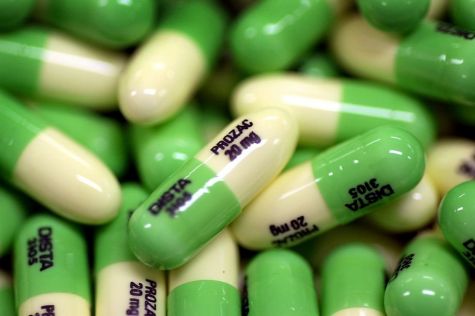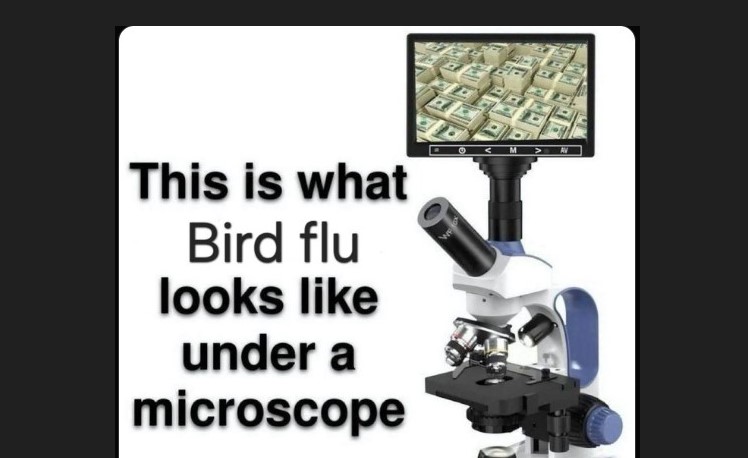Florida grand jury exposes “profound and serious” issues in U.S. vaccine development and safety
01/12/2025 / By Willow Tohi

In a groundbreaking report released this week, a Florida grand jury has uncovered “profound and serious issues” in the U.S. vaccine development and safety surveillance system. While the jury found no criminal activity, it revealed a troubling pattern of “deceptive and obfuscatory behavior” by pharmaceutical companies and regulators, raising urgent questions about transparency, ethics, and accountability in the nation’s public health infrastructure.
The grand jury, convened by Florida Governor Ron DeSantis in December 2022, was tasked with investigating “any and all wrongdoing” related to COVID-19 vaccines. After a year-long review of documents, interviews with key witnesses, and an examination of the vaccine production process, the jury’s 140-page report paints a damning picture of a system rife with conflicts of interest, lack of transparency, and ethical lapses.
“While we did not find criminal activity,” the report states, “we did find a pattern of deceptive and obfuscatory behavior on the part of sponsors and regulators that often straddled the line between ethical and unethical conduct.” The report emphasizes that the absence of criminal charges does not equate to an absence of problems. On the contrary, it highlights systemic flaws that, if left unaddressed, will continue to undermine public trust in vaccines and the institutions tasked with safeguarding public health.
A system in need of reform
The grand jury’s findings reveal a litany of issues plaguing the vaccine development and regulatory process. Among the most alarming revelations is the failure of pharmaceutical giant Pfizer to disclose adverse events in pregnant women during one of its key clinical trials. These events were omitted from published studies in the New England Journal of Medicine and only came to light because Pfizer was legally required to post trial results on ClinicalTrials.gov.
The report also criticizes the FDA for its lax enforcement of marketing restrictions on vaccine companies. For example, Moderna’s 2021 ad campaign, which featured a former athlete urging Americans to “protect the team” by getting vaccinated, was allowed to run despite promoting vaccination in general rather than a specific product. This blurring of lines between public health messaging and corporate advertising raises concerns about the FDA’s role as a regulator versus a cheerleader for the pharmaceutical industry.
Perhaps most troubling is the “revolving door” between the FDA and the pharmaceutical industry, a phenomenon documented in a 2024 investigation by Peter Doshi, Ph.D., senior editor at The BMJ. Doshi’s research revealed that departing FDA staff often take lucrative positions in the pharmaceutical sector, where they continue to influence regulatory decisions “behind the scenes.” This cozy relationship, the grand jury argues, undermines the FDA’s ability to act as an impartial watchdog.
Recommendations for change
The grand jury’s report is not merely a critique; it is a call to action. The jury offers six key recommendations to reform the vaccine development and regulatory process:
1. Address the revolving door: The public must confront the pervasive conflicts of interest created by the movement of personnel between government agencies and the pharmaceutical industry.
2. Disclose safety signals immediately: Vaccine makers should be required to publicly disclose safety signals as soon as they are identified, rather than waiting for confirmation. The report argues that treating the public as incapable of understanding nuanced information is “infantilizing and paternalistic.”
3. Conduct updated clinical trials: Pfizer and Moderna’s COVID-19 vaccines should undergo updated clinical trials to address lingering questions about their safety and efficacy.
4. Ban direct-to-consumer marketing: The practice of pharmaceutical companies advertising directly to consumers should be prohibited to prevent the manipulation of public perception.
5. Publish anonymized patient data: Vaccine makers must swiftly release anonymized individual patient data from safety and efficacy studies after receiving FDA licensure.
6. Remove legal immunity: Companies that fail to comply with data transparency requirements should lose their legal immunity from lawsuits.
A call for systemic change
The grand jury’s report is careful to avoid taking sides in the polarized debate over COVID-19 vaccines. It acknowledges that the vaccines have been hailed as a “triumph of science” by some and criticized as recklessly overpromoted by others. Both perspectives, the report suggests, contain elements of truth.
What the jury seeks is not to fuel ideological battles but to spark a much-needed conversation about systemic reform. “If this Final Report accomplishes nothing else,” the authors write, “we are optimistic that it can elevate the debate around the many nuanced and specific issues involving these pharmaceuticals by clearly describing and contextualizing them.”
Governor DeSantis echoed this sentiment in a statement on X, emphasizing that the status quo is untenable. “The American people deserve transparency on how Big Pharma is using their federal tax dollars,” he said, “and they deserve regulating entities that operate as watchdogs, not cheerleaders.”
A blueprint for the future
The grand jury’s findings and recommendations represent a critical step toward restoring public trust in the vaccine development process. By shining a light on the ethical and systemic issues that have plagued the system, the report provides a blueprint for meaningful reform.
As the nation grapples with the lessons of the COVID-19 pandemic, this report serves as a stark reminder that transparency, accountability, and ethical governance are not optional—they are essential to the health and well-being of the American people. The question now is whether policymakers, regulators, and the pharmaceutical industry will heed this call for change or continue to prioritize profit over public trust.
For those who value natural health and informed consent, the grand jury’s report is a vindication of long-held concerns about the influence of Big Pharma and the need for a more balanced, transparent approach to public health. The time for systemic change is now.
Sources include:
Submit a correction >>
Tagged Under:
big government, Big Pharma, Censored Science, conflicts of interest, conspiracy, corruption, deception, health freedom, Medical Tyranny, pandemic, pharma fraud, progress, Public Health, real investigations, Ron DeSantis, suppressed, vaccine wars, vaccines
This article may contain statements that reflect the opinion of the author
RECENT NEWS & ARTICLES
ChemicalViolence.com is a fact-based public education website published by Chemical Violence Features, LLC.
All content copyright © 2018 by Chemical Violence Features, LLC.
Contact Us with Tips or Corrections
All trademarks, registered trademarks and servicemarks mentioned on this site are the property of their respective owners.




















